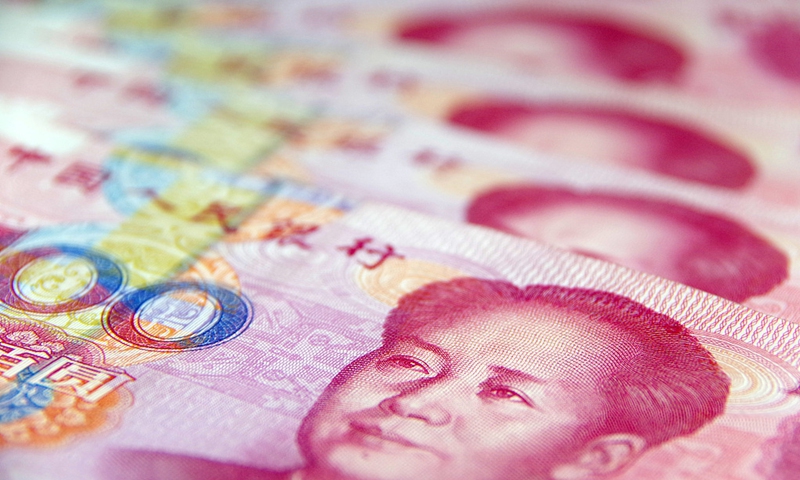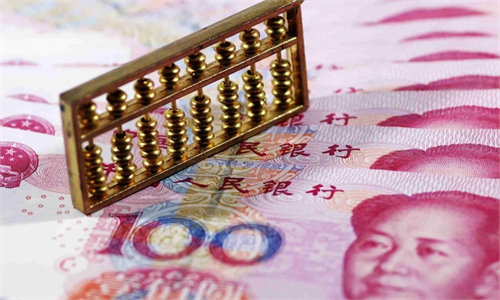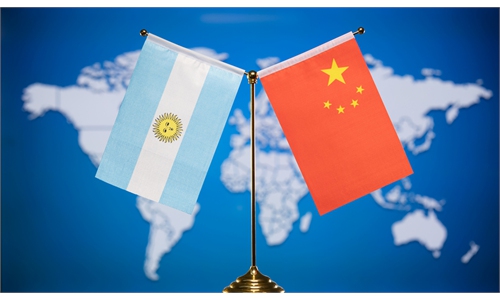
Chinese yuan Photo:VCG
China aims to expand the yuan's use in cross-border trade and investment, and the authorities are encouraging banks to increase yuan lending, another move to promote foreign trade, financial opening-up and the global use of the Chinese currency, experts said.The regulators asked banks to provide more convenient and efficient settlement services, extend overseas yuan lending and encourage innovation in cross-border yuan settlement to better meet the needs of cross-border yuan investment and financing, according to a notice issued by the Ministry of Commerce and the People's Bank of China (PBC).
"We will encourage banks to cut yuan financing costs, support enterprises to clinch business deals engaged in the Belt and Road Initiative, and we encourage overseas projects and enterprises that meet the conditions to prioritize in using yuan loans," the notice read.
The regulators will continue to support yuan pricing and settlement of bulk commodities, encourage overseas investors to invest in China using the yuan, and promote yuan settlements in trade and investment.
Efforts should be made to promote cross-border use of the yuan, leveraging on the construction of pilot zones for free trade, including the Hainan Free Trade Port, Guangdong-Hong Kong-Macao Greater Bay Area and Shanghai International Financial Center, the notice said.
The move will reduce the risks of exchange rate fluctuations for trade companies in a volatile world, Zhou Maohua, an economist at Everbright Bank, told the Global Times on Wednesday.
"There is huge potential demand for cross-border yuan payment and settlement by trade firms. Expanding the use of the yuan in the cross-border payment system will help promote the internationalization of the yuan and the development of foreign trade," Zhou said.
China's yuan has played a bigger role in the world. Use of the yuan jumped to 2.37 percent of all global payments in November, up from 2.13 percent in October, remaining the fifth most active currency.
The expansion of the cross-border yuan market is a direct result of China's status as the world's second-largest economy, China's image as a responsible country, and the stability of the yuan value, Dong Dengxin, director of the Finance and Securities Institute of the Wuhan University of Science and Technology, told the Global Times on Wednesday.
As the yuan wins support of international capital and overseas institutions, foreign investment in yuan assets will rise and the onshore and offshore yuan markets will largely converge, Dong said.
In a report on yuan internationalization released in November, the PBC pledged to expand the use of the yuan in foreign trade and investment.
To better meet market demand, it is necessary to continuously focus on policy design, policy support and market cultivation to strengthen coordination between the yuan and foreign currencies, and support market entities to use yuan for transaction and settlement, the PBC said.



